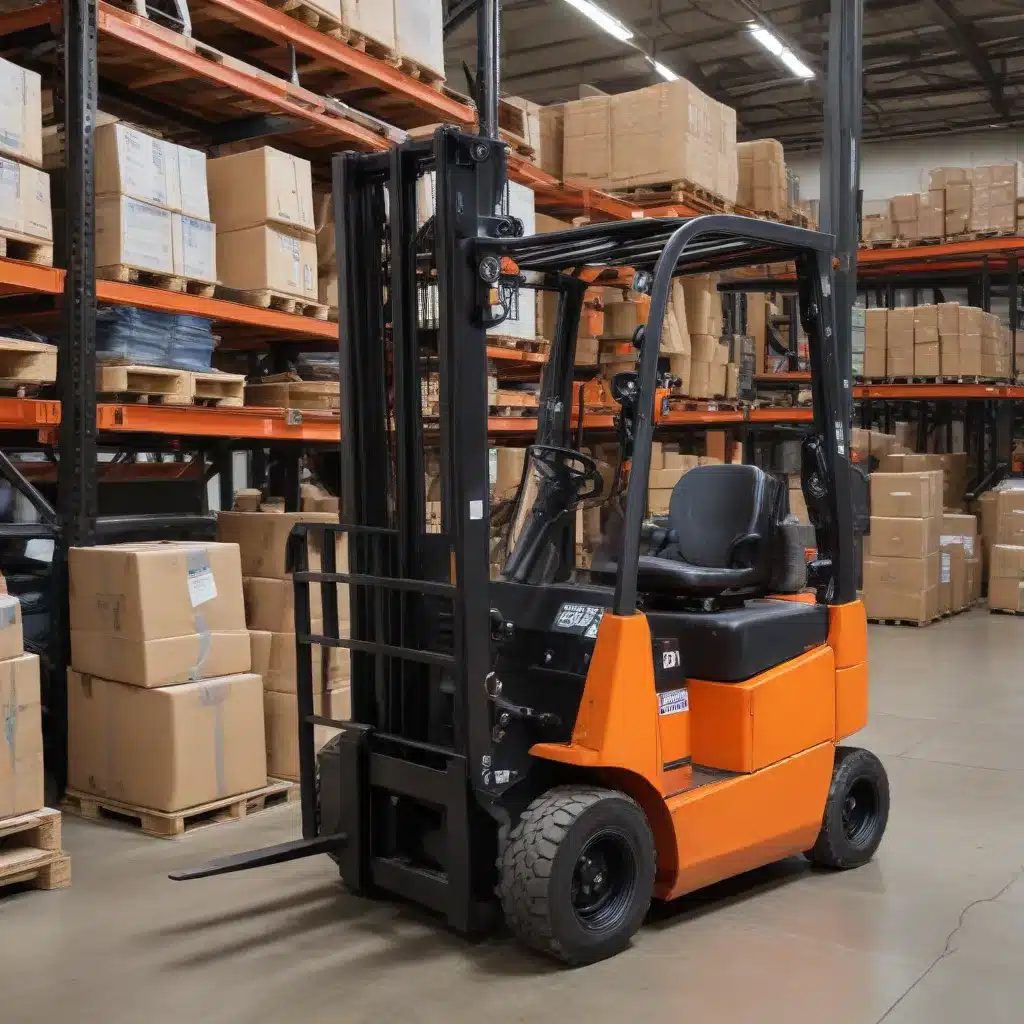
The Importance of Proper Battery Management
In the dynamic world of warehouse operations and logistics, forklifts are the unsung heroes, powering the efficient movement of goods and materials. However, as these workhorses become increasingly electrified, the management of their lithium-ion batteries poses unique challenges that require the attention of seasoned industry experts.
Proper battery management is not only essential for maintaining forklift performance and productivity, but also for ensuring the safety and sustainability of warehousing and logistics operations. As the global demand for electric vehicles and energy storage systems continues to soar, the need for responsible battery recycling has never been more critical.
Understanding the Risks and Complexities of Lithium-Ion Batteries
Lithium-ion batteries, the backbone of modern forklift power, offer numerous advantages, including high energy density, long runtime, and minimal maintenance. However, these technological marvels also come with inherent risks that must be carefully navigated.
The improper disposal or mishandling of lithium-ion batteries can lead to significant safety hazards, such as fires and chemical leaks, which can jeopardize both property and human life. Moreover, the extraction and processing of the raw materials required for these batteries, such as lithium, cobalt, and nickel, can have a substantial impact on local ecosystems and the environment.
To address these concerns, the European Union has introduced the EU New Battery Regulation (EU) 2023/1542, a comprehensive set of rules and guidelines that aim to improve the sustainability, safety, and traceability of battery management across the continent. This regulation has far-reaching implications for forklift operators, manufacturers, and service providers, who must adapt their practices to ensure compliance.
Navigating the EU New Battery Regulation
The EU New Battery Regulation encompasses a broad range of requirements, including:
1. Due Diligence and Supply Chain Traceability
By August 2025, forklift operators and battery suppliers must establish a robust system of controls and transparency, including a chain of custody or traceability system, for their cobalt, natural graphite, lithium, and nickel supply chains. This system must be supported by verifiable documentation that proves the provenance, material flows, and quantities of these critical materials.
2. Carbon Footprint Transparency
Starting in October 2025, forklift operators and battery manufacturers must provide carbon footprint declarations for each battery model and manufacturing plant, supported by publicly available studies. As the regulation matures, batteries will be classified into carbon performance classes, exposing those with higher footprints and requiring compliance with maximum threshold limits.
3. Battery Passports
By February 2027, forklift operators and battery suppliers must issue a digital battery passport, accessible via a QR code, for every battery they place on the market. This passport must contain detailed information on the battery’s chemistry, capacity, performance, safety, cycle life, carbon footprint, and other critical data.
4. Recycled Content Requirements
By August 2028, forklift operators and battery suppliers must declare the percentage of recycled content of cobalt, lithium, nickel, and lead recovered from battery manufacturing waste and post-consumer waste, for each battery model. These minimum recycled content requirements will then increase over time, reaching 26% cobalt, 85% lead, 12% lithium, and 15% nickel by August 2036.
To ensure compliance with these complex regulations, forklift operators and battery suppliers must work closely with industry experts and invest in robust data collection and traceability systems. Solutions like the PROVE platform by Circulor offer a comprehensive platform for managing supply chain due diligence, carbon footprint tracking, battery passport creation, and recycled content verification.
Forklift Battery Replacement and Recycling Best Practices
As forklift operators navigate the new regulatory landscape, it is crucial to adopt best practices for forklift battery replacement and recycling. These practices not only ensure compliance but also contribute to the overall safety and sustainability of warehouse and logistics operations.
Battery Replacement
- Regularly inspect forklift batteries for signs of wear, damage, or performance degradation, and replace them as needed.
- Ensure that replacement batteries are compatible with the forklift model and meet all relevant safety and performance standards.
- Properly dispose of old batteries, following local regulations and working with certified battery recyclers.
Battery Recycling
- Partner with reputable and licensed battery recyclers who can safely and responsibly handle the collection, transportation, and processing of used forklift batteries.
- Maintain detailed records of battery serial numbers, replacement dates, and recycling information to comply with traceability requirements.
- Explore opportunities to increase the percentage of recycled content in new batteries, contributing to the circular economy and reducing the need for virgin raw material extraction.
Industry Innovations and the Path Forward
As the forklift industry navigates the complexities of battery management, innovative solutions are emerging to address the challenges. For example, the éoltainer solution from Stelliant offers mobile waste collection centers that enable the selective collection and transportation of all types of industrial waste, including lithium-ion batteries, while ensuring traceability and environmentally-friendly management.
Similarly, the development of advanced battery recycling technologies can help recover more materials from used batteries, reducing the need for raw material extraction and the associated environmental impact. By working closely with experts and investing in research and development, the forklift industry can ensure a future that is not only electric but also safe, sustainable, and aligned with the EU’s ambitious goals for a circular economy.
In conclusion, the proper management of forklift batteries is a crucial aspect of warehouse and logistics operations. By understanding the risks and complexities associated with lithium-ion batteries, embracing the guidelines set forth by the EU New Battery Regulation, and implementing best practices for battery replacement and recycling, forklift operators can ensure the continued safety, productivity, and sustainability of their operations. Through collaboration, innovation, and a commitment to responsible battery stewardship, the forklift industry can navigate this evolving landscape and lead the way towards a greener, more efficient future.

